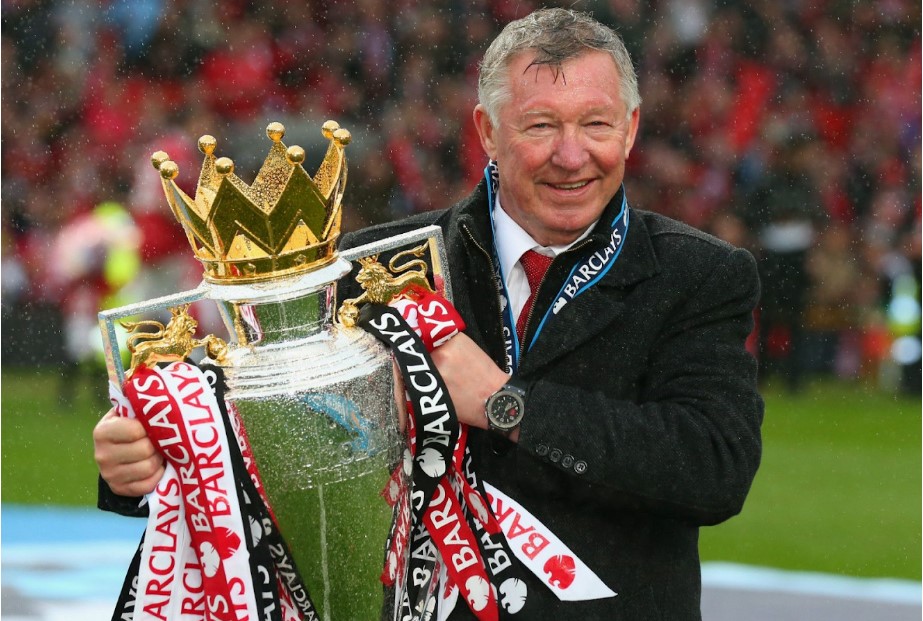Sir Alex Ferguson is a name synonymous with football excellence. As the manager of Manchester United for 26 years, his leadership and tactical acumen transformed the club into one of the most successful teams in the history of the sport. Ferguson’s influence transcends mere statistics; he instilled a winning mentality and a culture of resilience that became the hallmark of Manchester United. His innovative approaches to training, player development, and match strategies not only redefined the club’s legacy but also had a significant impact on football as a whole. In a world where competition is fierce and the stakes are high, Ferguson’s story serves as a testament to the power of strategy, adaptability, and relentless ambition. Additionally, platforms like Xoilac TV provide fans with invaluable insights and live coverage of matches, enhancing the football-watching experience for millions around the globe.
The Early Years: Foundations of a Great Manager
Building a Legacy at Aberdeen
Ferguson’s journey to becoming a footballing giant began at Aberdeen, where he took over as manager in 1978. At that time, the Scottish club was overshadowed by the dominance of Celtic and Rangers. However, Ferguson quickly identified the need for a strategic overhaul. He focused on youth development, bringing in local talents and fostering a competitive spirit within the squad. His most significant achievement at Aberdeen was leading the team to victory in the 1983 UEFA Cup Winners’ Cup, a feat that shocked the football world and established Ferguson as a rising star in management.
The Move to Manchester United
In 1986, Ferguson was appointed as the manager of Manchester United. Initially facing challenges in the league and fan expectations, he was determined to restore the club’s former glory. The turning point came with the FA Cup victory in 1990, which not only provided silverware but also solidified his position as the right man for the job. Ferguson’s strategic mindset allowed him to build a team that blended youth with experience, laying the foundation for an era of unprecedented success.
The Tactical Genius: Strategies That Transformed the Game
Embracing Change and Innovation
Ferguson’s ability to adapt to the evolving nature of football was one of his greatest strengths. He understood the importance of modernizing training methods and incorporating sports science into the team’s regimen. By embracing new technologies and analytics, he was able to gain a competitive edge over rivals. Ferguson also recognized the significance of mental toughness and psychological resilience in football. He often employed motivational tactics that instilled confidence in his players, allowing them to thrive under pressure.
Tactical Flexibility: The Key to Success
One of Ferguson’s hallmarks was his tactical flexibility. He was never afraid to change his approach based on the strengths and weaknesses of his opponents. Whether utilizing a 4-4-2 formation or a more dynamic 4-3-3, Ferguson’s adaptability kept rival managers guessing. His renowned ability to make crucial in-game adjustments often turned matches in Manchester United’s favor. For instance, in the 1999 UEFA Champions League final against Bayern Munich, Ferguson’s decision to introduce Teddy Sheringham and Ole Gunnar Solskjær in the dying minutes led to a stunning comeback and secured the treble for the club.
Cultivating Talent: The Class of ’92
His legacy continues to influence managers and players alike, inspiring future generations to strive for greatness. Furthermore, platforms like Xoi lac tv play a crucial role in celebrating the beautiful game, providing fans with insights and coverage that enhance their connection to football’s rich history and future.
The Rise of Youth Academy Stars
Ferguson’s commitment to developing young talent reached its zenith with the emergence of the Class of ’92. Players like Ryan Giggs, Paul Scholes, David Beckham, and Gary Neville not only became integral to Manchester United’s success but also revolutionized English football. Ferguson’s belief in nurturing homegrown talent demonstrated his understanding of the game’s dynamics. He often emphasized that success in football is not solely about acquiring star players but also about fostering a culture of excellence and teamwork.
A Lasting Impact on English Football
The Class of ’92 not only reshaped Manchester United but also had a profound influence on the English football landscape. Their success inspired a new generation of players and emphasized the importance of youth development in clubs across the country. Ferguson’s vision extended beyond immediate success; he laid the groundwork for future generations to thrive, ensuring that the ethos of hard work and perseverance would remain at the core of English football.
The Ferguson Philosophy: Beyond Tactics
Building a Winning Culture
At the heart of Ferguson’s success was his ability to cultivate a winning culture. He instilled a sense of unity among players, fostering strong relationships that went beyond the pitch. Ferguson’s famous “hairdryer treatment” was not just a disciplinary tactic but a means to motivate players to push their limits. He understood that to achieve greatness, every member of the team had to be aligned with the club’s vision and values.
Resilience and Leadership
Ferguson’s resilience in the face of adversity was legendary. His ability to bounce back from setbacks, whether it was a string of poor results or losing key players to injuries, showcased his leadership qualities. He often spoke about the importance of character in football, emphasizing that true champions rise above challenges. Ferguson’s unwavering belief in his players inspired them to perform at their best, even in the most demanding situations.
Conclusion
Sir Alex Ferguson’s impact on football is immeasurable. His tactical genius, commitment to youth development, and ability to build winning cultures have left an indelible mark on the sport. As we look back at his illustrious career, it is clear that Ferguson not only redefined success in football but also transformed the way the game is approached.









